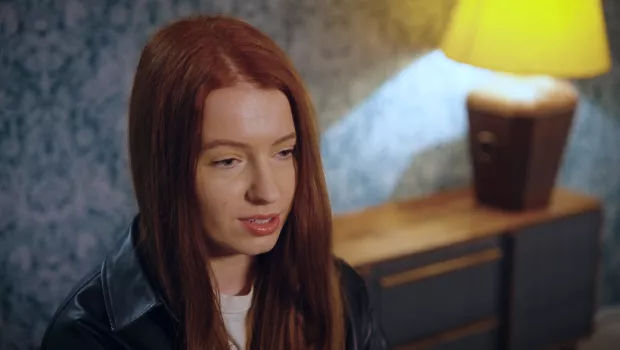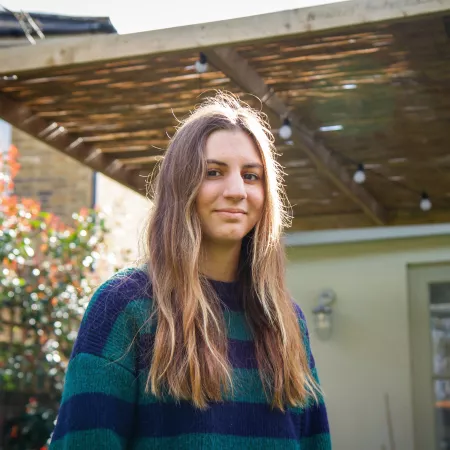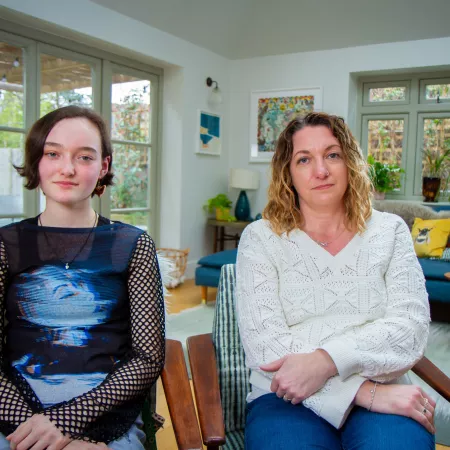
Getting a good night's sleep
Discover helpful tips for improving sleep quality, especially for those with epilepsy, from bedtime routines to creating a sleep-friendly environment.
Everyone feels sad from time to time, but a constant low mood shouldn’t be ignored.

Everyone feels sad from time to time, but a constant low mood shouldn’t be ignored. It’s more than likely depression. And it’s nothing to be ashamed of - ever.
Depression changes how you feel about life and makes even simple everyday tasks feel like a challenge. It can interfere with school, work and your personal life.
There’s a big link between epilepsy and depression. Although they’re completely different conditions, the two can attract each other. People with epilepsy are more likely to develop depression than others. Our bodies and minds are connected and epilepsy can affect your emotional health. Just as depression can trigger a seizure. It can also be a side effect to some meds, so it’s important you talk to your epilepsy doctor as soon as you notice any change in your mood.
On average in the UK, 1 in 6 people have depression. If you have epilepsy this is 1 in 3. It affects everyone differently but you may notice you feel:
If you have any dark thoughts such as harming yourself or ending your life – talk to family, friends, strangers or doctors immediately.
Other young people with epilepsy describe the impact on their mental wellbeing as:
Severe anxiety and depression, feel like I have no independence.Young person with epilepsy
Epilepsy has taken a lot of things from me. It has impacted my life greatly and my mental health has suffered as a result. I now have a diagnosis of PTSD, anxiety and depression.Young person with epilepsy
Young people with epilepsy who responded to our survey told us:
99% of young people who responded to our survey said living with epilepsy has had an impact on their mental health.
57% of young people who responded to our survey said living with epilepsy has had an impact on their learning.

Read about Renell's experience of feeling depressed.
Talk to friends, family, those you trust. Keep connected to those you care about and who care about you. You can also talk to people at Young Epilepsy who will understand you.
Try your best to eat a balanced diet and avoid drinking alcohol (it’s a depressant after all)
Try to have a good sleep routine – 8 hours or more if you can. If you struggle with sleep, find out here what you can do to help make sure you catch those zzzz's.
Find exercise that you enjoy and that doesn’t feel like a challenge or chore. Then try to do as much as you can. Endorphins are chemicals that are natural anti-depressants, and your body releases these when you exercise.
Guided meditations to support with breath work are available for free on Youtube.
You may find journalling a helpful way to release. It helps you get things off your chest and put your feelings into writing. You can write down what is worrying about your seizures or get off your chest an experience you’ve maybe had because of your seizures.
The brain doesn’t know the difference between real/fake smiling or laughter. So smile at yourself in the mirror, watch a comedy, or try some online laughter exercises on YouTube.
Recommended by one of our young reps, Kooth offers online mental health services that work alongside you to provide compassionate and effective support.
If you feel you might be depressed, please contact your GP.
If you are struggling with feelings of depression, remember, you are not alone.
Try downloading one of these apps that young people recommend:
If you feel like you would like to talk to someone, you can reach out to one of the organisations below. There are people ready and waiting to support you:
Find further signposting and how you can receive support from Young Epilepsy.
For anyone struggling with their mental health, we have partnered with SHOUT, a FREE 24/7 confidential text service.
To start a conversation Text PURPLE to 85258
It’s hard to talk about, but even if you’re crying, go to someone you trust and let it all out, don’t ever be afraid of what you are going to say. Because once you have spoken, even if it’s just one word, that’s where it all gets better.Young Person

“If you’re struggling, just know you’re not alone and you deserve help and to be happy.”
The theme of Depression has been supported by an educational grant by GW Pharmaceuticals

Discover helpful tips for improving sleep quality, especially for those with epilepsy, from bedtime routines to creating a sleep-friendly environment.

Tips from young people living with epilepsy about how to check in with them and their mental health, whether you're a friend or a professional supporting them.

Learn how young people with epilepsy can access mental health support, including where to find help and tips for starting the conversation.
A space for young people, aged 13+, who are living with epilepsy, for them to share, learn and find support.